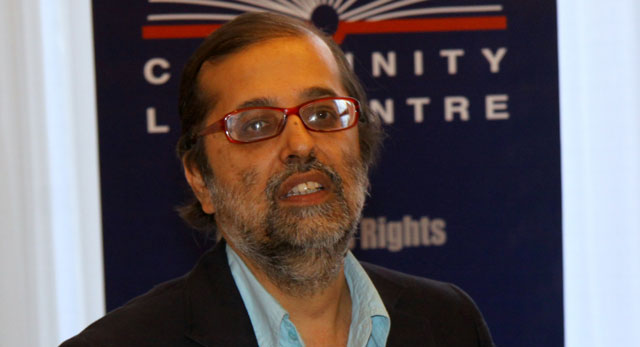
Government has not reached a final decision on whether to include an encryption system in state-subsidised digital television set-top boxes, despite a recent statement by the SABC that it no longer supports proposals, advanced by rival e.tv, that the boxes should include such a system.
This is according to communications minister Yunus Carrim, who was responding to questions in parliament on Tuesday from Democratic Alliance MP Marian Shinn.
“Is the SABC board deciding for government? The answer is a categorical ‘no’. It cannot,” Carrim said. “The SABC, as important as it is, is one of several stakeholders in this regard. It cannot decide policy for its shareholder. But what it says has to be taken seriously.”
Shinn said at the weekend that SABC acting chief operating officer Hlaudi Motsoeneng had “unilaterally” decided on government policy when it announced last month that it would not support the inclusion of encryption, also known as conditional access, in the set-top boxes South Africans will need to access digital terrestrial television.
In July, the SABC agreed, in a commercial deal with MultiChoice, that it would not carry any of its free-to-air channels over a system that uses conditional access. Encryption is typically used by pay-TV operators to restrict viewing to paying subscribers, but e.tv has said it has many benefits for free-to-air broadcasters, too, which will allow them to compete more effectively with MultiChoice’s DStv.
The SABC may have become a pawn in a war between MultiChoice and e.tv over conditional access, with the pay-TV operator dead against taxpayers funding a conditional access system and the commercial free-to-air broadcaster arguing strongly in favour of the idea.
Now, Carrim has said that cabinet will decide soon if it will support conditional access. Its decision will be based on a number of considerations, he told parliament. Among these will be which approach will best protect the local electronics industry and create jobs and also how “indigenous entrepreneurs” can benefit from the roll-out of set-top boxes.
Government will also consider how to allow new entrants into a pay-TV sector “to challenge a monopoly, but not at the expense of the set-top box subsidy”.
Two further considerations are what will be the “fastest, simplest and most effective way to move forward” given the country is more than five years behind schedule in migrating from analogue to digital terrestrial television, and which likely court challenge to cabinet’s decision — from MultiChoice or e.tv — will prove the “least strenuous” for government to defend.
In replying to Shinn on the SABC’s decision not to support conditional access, Carrim said his predecessor, Dina Pule, had told parliament that she was considering reviewing government support of encryption. “Moreover,” he said, in June she wrote to the SABC to “make it very clear that she is seriously moving in that direction”.
“The 19 June letter gave [the SABC] the go-ahead. When I came in [as the new minister] on 10 July, that contract was already agreed to. That’s neither here nor there, because at the end of the day the government has to decide what is in the best interests of the public. Where there is a difference between itself and the SABC, government will obviously prevail,” Carrim said.
He said he would report back to parliament early in the new year. — (c) 2013 NewsCentral Media




